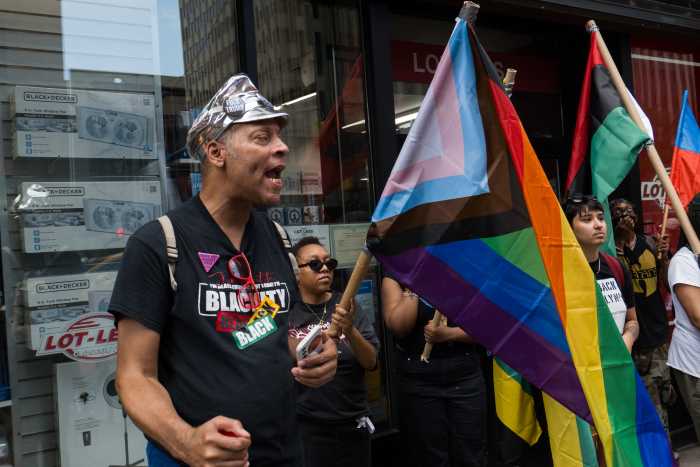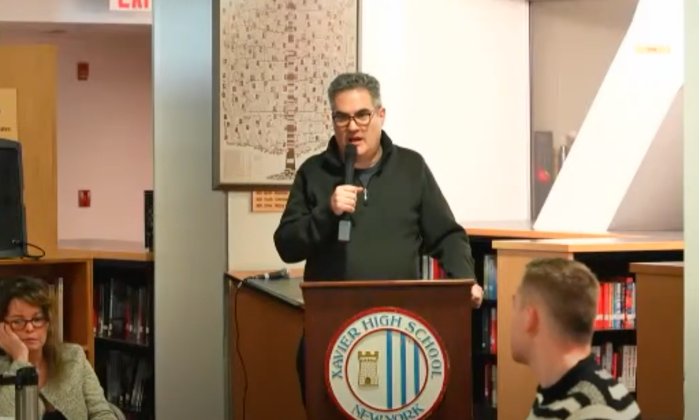Samuel Menashe, whose short, jewel-like poems won him a following in Britain and belated recognition at home, died August 22 at the age of 85 in a Manhattan nursing home, where he moved last year. The cause was listed as heart disease.
For more than 50 years, Menashe lived in a small three-room railroad flat on the fifth floor of a Thompson Street walk-up with a bathtub in the kitchen.
“When we’d run into him in the street he’d often recite a poem — they were all short,” recalled Julie Salamon, a neighbor, who with her husband, Bill Abrams, had been friends of Samuel Menashe for 35 years.
Salamon recalled Menashe’s elegant diction and resonant voice, which he displayed occasionally at readings in local libraries, the most recent in March 2010 at the Mulberry Street Library.
“He read a passage from one of his stories about living in Spain after military service in World War II,” Salamon said. “He was a fascinating man, and we were very lucky to know him.”
His first poem was published in the Yale Review in 1956, the year he moved into his Thompson Streetapartment.
His poems also appeared in magazines, including The New Yorker and Partisan Review, a literary journal that published from 1934 to 2003. But he was relatively unknown until British poets promoted his work in the Penguin Modern Poets series and his book “The Many Named Beloved” was published in Britain in 1961.
Recognition in the U.S. came in 2004 when the Poetry Foundation gave him its first Neglected Masters Award, with $50,000, and printed a collection of his work.
Samuel Menashe Weisberg was born in Brooklyn and raised in Queens, where his father ran a laundry and dry-cleaning business. He graduated from Townsend Harris High School at 16, and enrolled in Queens College to study biochemistry. But he enlisted in the Army at age 18 in 1943. As an infantryman, he fought and slogged through France, Belgium and Germany.
In a 2003 article that Salamon wrote for The New York Times about Menashe, he recalled a day during the Battle of the Bulge when his company started the morning with 190 men and was left with only 29 by evening. The rest were dead, wounded or taken prisoner.
Menashe was 20 when the war ended. He returned to Queens College, but left without a degree and went to Europe, where he earned a degree from the Sorbonne in 1950. He started writing stories based on his Army experiences and his childhood. But, he recalled, “One night I woke up in the middle of the night and a poem started,” as he told a National Public Radio interviewer in 2006.
Salamon’s New York Times article notes that Menashe took the C train to Central Park almost every day where he often “walked a poem to completion even before I write it down.”
He taught occasionally at Bard and C.W. Post colleges, but earned his living in various pickup jobs as a waiter, tour bus guide, French tutor and lecturer on cruise ships, according to Salamon’s article.
Her article included a poem, “At a standstill,” that Menashe wrote about the bathtub in his kitchen:
“That statue, that cast/Of my solitude/Has found its niche/In this kitchen/ Where I do not eat/ Where the bathtub stands/Upon cat feet — /I did not advance/I cannot retreat”


































